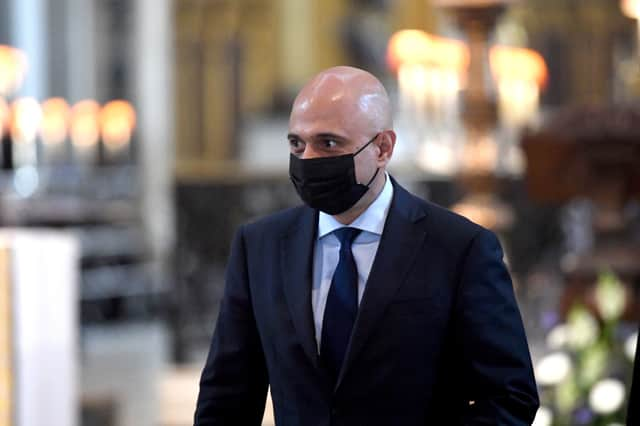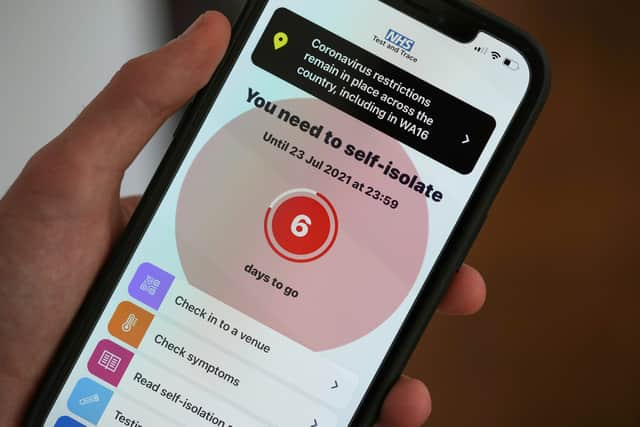Self-isolation changes on Monday for fully-vaccinated people - full list of new rules


People who are fully vaccinated against Covid and come into contact with someone who tests positive will not have to quarantine, under new guidance.
Instead, they will have to reduce their contact with others and will be advised to wear a mask and take a PCR test.


When will the new rules come into effect?
Advertisement
Hide AdAdvertisement
Hide AdFrom August 16, people in England who have had both doses of a Covid vaccine will no longer have to spend 10 days in quarantine if they are in contact with a positive case.
They will be advised to take a PCR test, but that will not be compulsory and they will not have to self-isolate while they wait for the result.
If someone develops symptoms of the virus, the government says they should self-isolate and get a PCR test, and stay in isolation until the result comes back.
The new guidance will apply to people who had their final dose of an approved vaccine at least 14 days before coming into contact with a positive case.
Advertisement
Hide AdAdvertisement
Hide AdPeople who test positive will still be legally required to self-isolate.
The government said people will also continue to be encouraged to do rapid lateral flow testing twice a week in an effort to find asymptomatic cases of the virus.
Health and social care staff will have to provide a negative PCR test to return to work if they are a contact of a positive case, and also take daily lateral flow tests for 10 days as a precaution, while those working with clinically extremely vulnerable patients will need to undergo a risk assessment before going back to work.
People using the NHS Covid app who are identified as close contacts of a positive case will be asked to self-declare if they are under-18 or double-jabbed and will be advised to book a PCR test.
What has the Department of Health said?
Advertisement
Hide AdAdvertisement
Hide AdThe Department of Health said that due to the fact even the double-jabbed are still at risk of being infected, contacts will be advised to consider other precautions like wearing a mask in enclosed spaces and limiting interactions with other people, especially the clinically extremely vulnerable.
Health Secretary Sajid Javid said Monday will be “another huge step back towards our normal lives”.
He said: “Getting two doses of a vaccine has tipped the odds in our favour and allowed us to safely reclaim our lost freedoms, and from Monday we can take another huge step back towards our normal lives by removing self-isolation requirements for double-jabbed people who are contacts of people with Covid.”
When can under 18 year olds book a jab?
On August 12, NHS England said thousands of young people approaching their 18th birthday can now book their jab.
Advertisement
Hide AdAdvertisement
Hide AdMore than 100,000 eligible teenagers will be sent text messages inviting them to get a vaccine.
There are more than 300 sites across England currently offering jabs to 16 and 17-year-olds, after the rollout was extended to that age group last week.
When it comes to school children, the government has said it will review testing requirements by the end of September.
The new school year in England will see bubble arrangements end for pupils.
Secondary school and college students are expected to do two onsite tests on their return to education, followed by twice weekly testing at home.